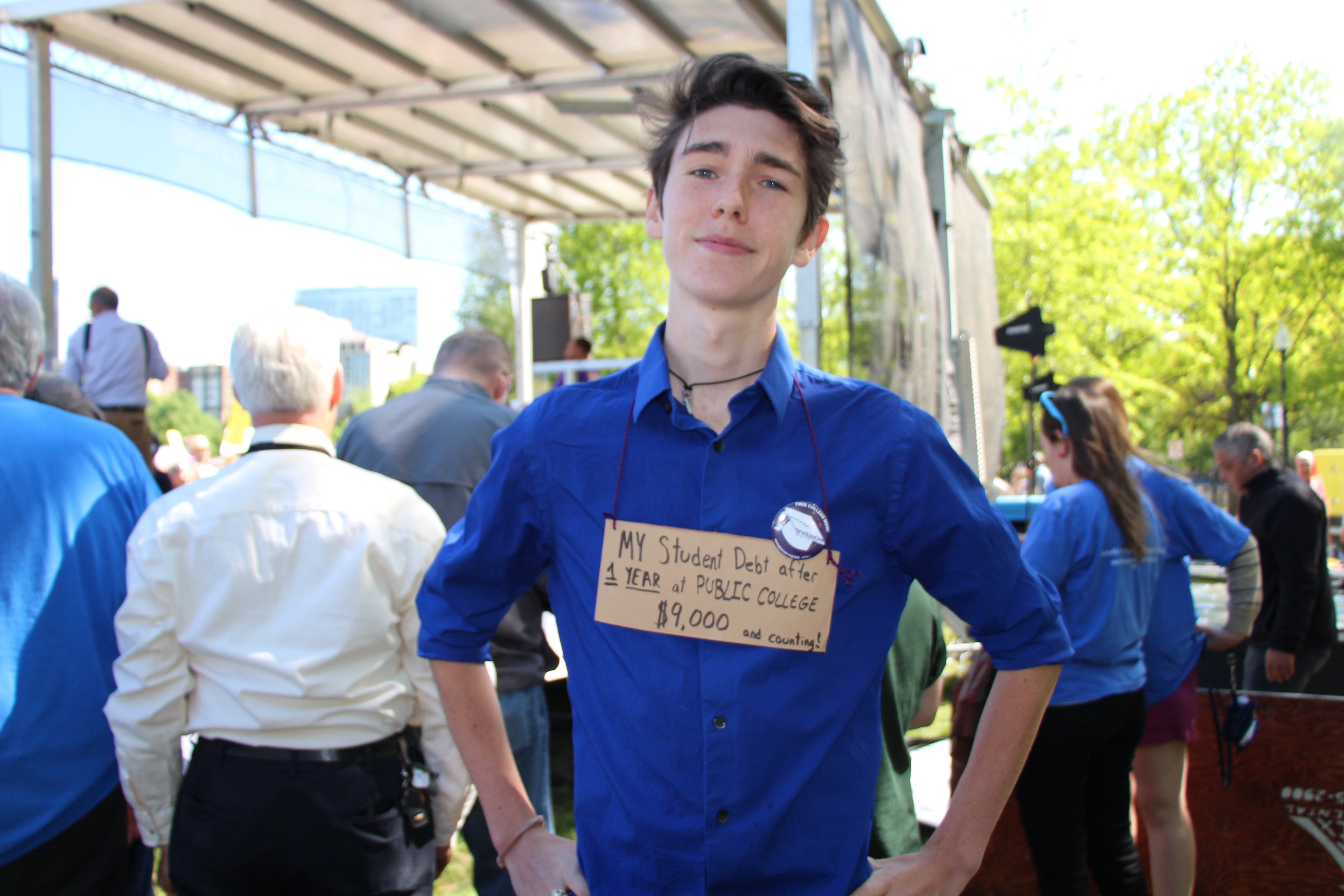Public Higher Ed Supporters Call for More Funding
Public Higher Ed Supporters Call for More Funding

The MTA and other supporters of public higher education called on state representatives on April 19 to support an amendment to the House budget that would increase public higher education funding by $101 million more than is provided in the governor’s budget.
Filed by state Rep. Natalie Higgins (D-Leominster), the amendment is in response to long-term funding cuts to our community colleges, state universities and the University of Massachusetts. It is supported by a broad coalition of groups, including business leaders, civic leaders, university presidents, students and faculty and staff from the 29 community college, state university and UMass campuses.
Click the banner to take action on this and other MTA-backed amendments.
We must do better by our students, our faculty and our staff,” said Barbara Madeloni, president of the MTA, which represents many public higher education faculty and staff. “The budget proposals filed by both the governor and the House Ways and Means Committee do little to reverse those trends.”
Both budgets increase spending on public higher education by about 1 percent, not enough to keep up with inflation. “Over 70 percent of Massachusetts high school graduates choosing to pursue a postsecondary education elect to attend one of our public universities and colleges. Investment in those students is the right thing to do,” Madeloni said.
In the recent report “Educated and Encumbered: Student Debt Rising with Higher Education Funding Falling in Massachusetts,” the Massachusetts Budget and Policy Center documents that between 2001 and 2016, per-pupil state support for public higher education and funding for student scholarships were both cut by one-third in inflation-adjusted dollars.
“The chronic underfunding and divestment of state support for public higher education is leading to rising student debt, the loss of classes and services, and barriers to access for our working families,” said Higgins.
“Getting a higher education is no longer a luxury,” said Fred Clark, president of Bridgewater State University and chair of the Council of Presidents of the Massachusetts State University System . “The lack of state investment in public higher education is threatening our ability to provide high-quality and affordable degrees that lead to good, rewarding careers for Massachusetts residents.”
Dr. James Mabry, President of Middlesex Community College said, “Community colleges are powered by dedicated faculty and staff, and fully funding state negotiated union contracts will assist the colleges in supporting student success.
According to the MassBudget report, the cost of public higher education in Massachusetts more than doubled between 2011 and 2016. The average debt for Massachusetts students has grown faster than in all but one other state. Those who graduate from a state university or UMass with debt owe an average of $30,250, almost as much as graduates of the state’s private colleges and universities.
“We can continue to place insurmountable barriers of high cost and massive debt in the way of students seeking a college degree and their families, or we can commit to making sure that the Commonwealth keeps its promise of making sure a quality college education is within the reach of all,” said Zac Bears, executive director of PHENOM, the Public Higher Education Network of Massachusetts, a student and community coalition made up of thousands of activists.
